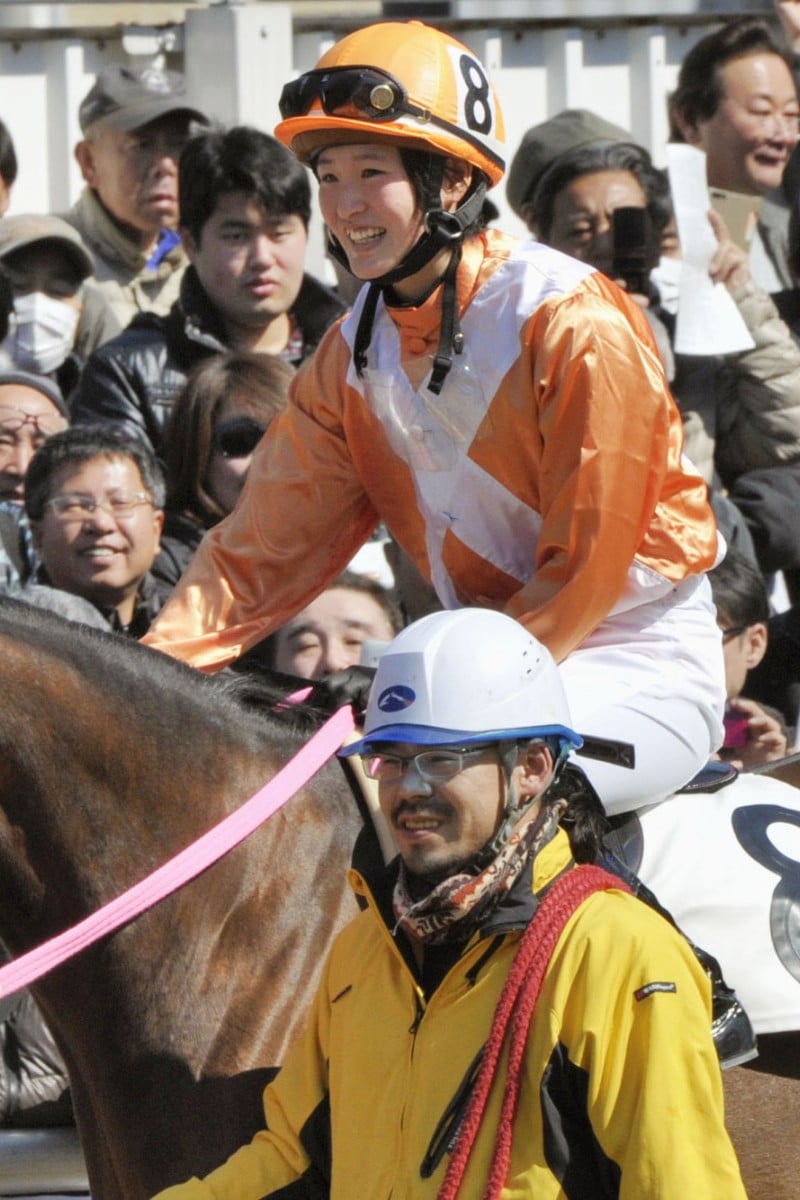
18-year-old Nanako Fujita realises her dream - qualifies as jockey in Japan
The teenager became a licesensed jocky this year, and the Japan Racing Association's first female jockey in 16 years
 Nanako on board for her first race.
Nanako on board for her first race.After three years of rigorous training, Nanako Fujita has turned her childhood dream into realit. At the age of 18 she has become a jockey.
Nanako is one of the six riders who passed the Japan Racing Association's test this year to become a licesensed jocky and became its first female rider in Japanese racing in 16 years.
"I've been waiting for this day ever since I dreamed of becoming a jockey in the sixth grade," Nanako said.
She said that even though there are very few female jockeys in the world, and far fewer successful ones, she was still determined to get her license.
Her 55-year-old father Minoru is an ordinary company employee and none of her relatives has any association with horse racing, which is rare for Japanese jockeys.
So, how did it happen? Nanako says she saw a horse race on TV. "I was impressed to see a human becoming one with a horse." At the time she was just as primary school student and the dream of being a jockey began right there.
Nanako, who is from Moriya, Ibaraki Prefecture, in eastern Japan, joined a youth team at Miho Training Centre in the prefecture for her basic training. She passed a highly competitive test to enter the JRA’s Horse Racing School.
In both elementary and junior high school, she learned martial arts, earning a first dan in karate and the second dan in kendo.
Yet she said the physical training she had at the JRA school was intense, and showed the big difference in physical strength between men and women.
"The physical workouts were the hardest," Nanako said, citing one programme in which she had to run while shouldering a weight of about 20 kilograms.
Nanako is not Japan's first female jockey. Yukiko Masuzawa and two other women passed the license in 1996, becoming the first-ever female jockeys. But, since Masuzawa retired in 2013, no women had raced on a Japanese track. Among the total six female jockeys before Nanako, Masuzawa was the most successful with 34 wins.
Meanwhile in Hong Kong, Kai Chiong Ka-kei carries the flag for women riders. She was just licensed as an apprentice for the 2015/2016 year after riding in New Zealand where she racked up 44 wins from 453 rides.
The last woman to win a race in Hong Kong was Carol Yu Wing-sze in May 2000, who has since retired.
When Masuzawa debuted two decades ago, the whole industry of horse racing was largely dominated by men. But there are women at the JRA training centre today, schooling and taking care of horses.
Overseas, female jockeys are not unusual. Julie Krone, a retired US jockey, was inducted into the National Museum of Racing's Hall of Fame in 2000, becoming the first female inductee.
Among other achievements by female riders, a team of women scored a landmark victory in the 2015 Shergar Cup international horse racing meet at Ascot Racecourse in Britain.
Nanako cited Lisa Allpress, a top rider from New Zealand who was on the Shergar Cup's winning team, as one of the female jockeys she respects.
"I want to learn from her stoic attitude toward horse racing," Fujita said.
The most famous woman jockey to date is Michelle Payne who rode Prince of Penzance to victory in the presitgious Melbourne Cup last year.
Nanako said female jockeys may have disadvantages, but added, "My biggest wish is to always stay cheerful and keep smiling."
"I want to become a jockey who will be trusted and loved by many people," she said.
Nanako made her debut on the March 3 Hina Matsuri (Doll Festival) day in Japan, also known as Girls' Day, riding in six races at the Kawasaki Racecourse near Tokyo and coming second as the best finish among them.
